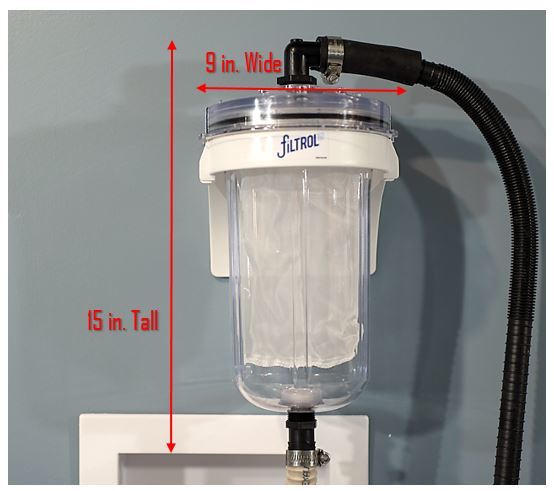
Georgian Bay Forever is still looking for more volunteers from the Town of Parry Sound to volunteer for a study involving our water.
Heather Sargeant, Communications Director says that so far, the community response has been quite good, though the research team is still short 70 participants out of the 100 required for this two-year study to be successful.
“To participate in this study, one would have to be on the Parry Sound water system, and volunteers have to be willing to capture the particles in the filter provided in a sealed bag and stored in their freezer. We anticipate that filters need to be emptied approximately every three weeks or so, and we would collect it every quarter. There is a little bit of interaction and work that the participants would need to do,” Sargeant said.
Another consideration to participate in the study is spacing in a laundry room so that the provided filter is easily accessible.
“The filter unit is 15” tall x 9″ wide x 8″ deep coming out from the wall, however, you will need to have a minimum of 24 inches to be able to remove the canister for cleaning,” she notes.
According to Sargeant, it’s critical that we look at our own behaviour as other studies have shown that microplastics have appeared in our waterways and in the food and water we consume on a regular basis. She adds that no one knows what the effects of microplastics are, at the rate in which we pollute.
“Microfibres have a large surface area and are capable of absorbing other toxic chemicals in our environment. There has been a growing body of evidence shown in wildlife that microplastics can decrease feeding and growth, leads to decreased fertility, effects on the endocrine system as well as other lethal and sub-lethal effects. We’re going to find more impacts on humans and we need to study them,” Sargeant added.
“Parry Sound has an incredibly unique opportunity to show the Great Lakes, show Ontario and really show the world what can be done to reduce micro-fibres getting into our water. This is the first field test of this kind and Parry Sound can be the lead in helping other municipalities and people all over understand the impacts of doing their wash and understand what you can do to divert microplastics in our water,” she said.
Volunteers must be in place by April. If you live in Parry Sound and wish to participate at no cost to the participant, find more information about this study here.


